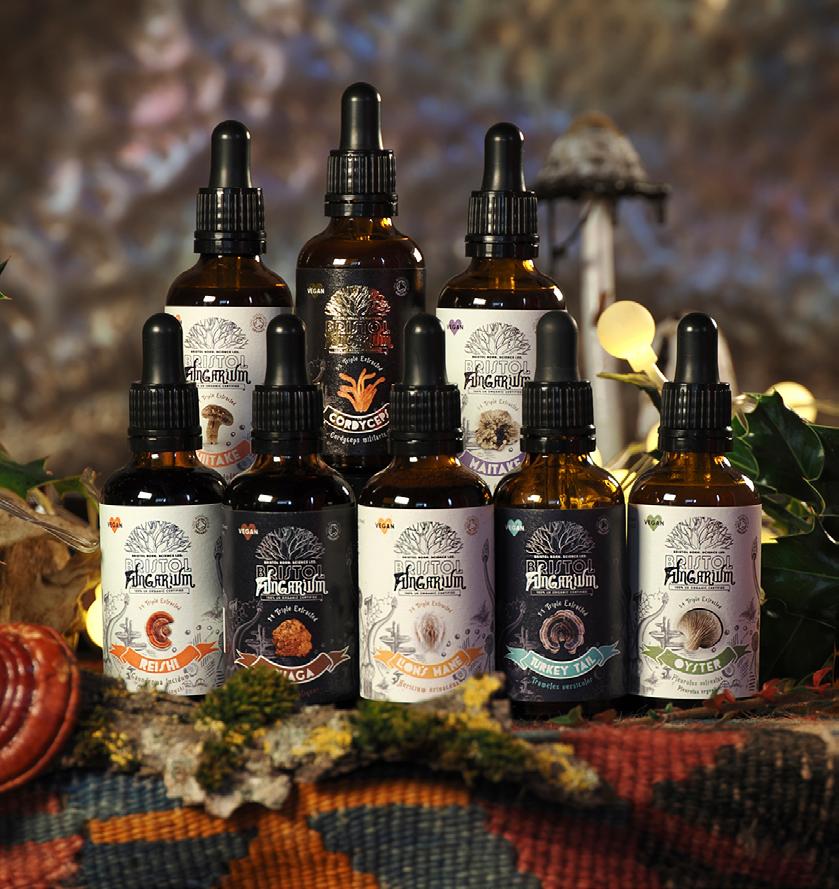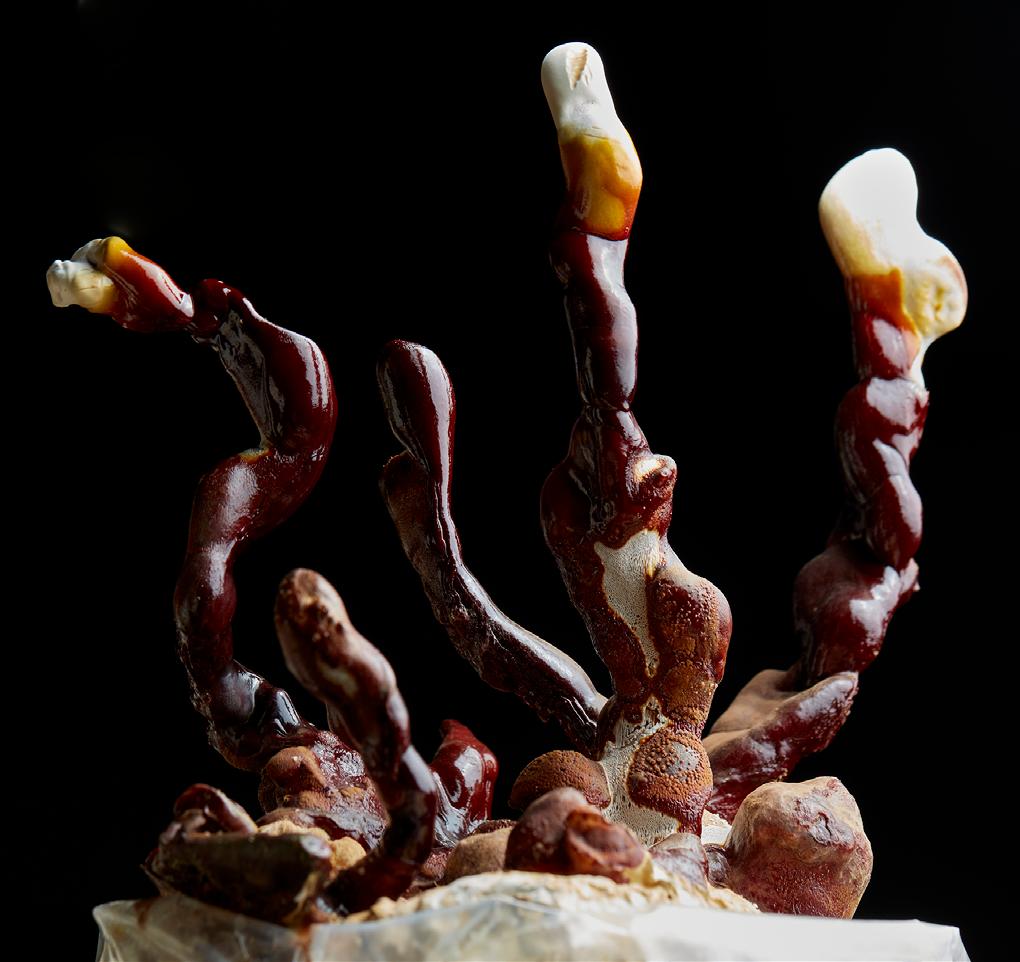
4 minute read
How to navigate the Shroom Boom
The healing powers of an ancient remedy are making a big comeback in a modern context, here’s everything you need to know.
It was only a matter of time before functional mushrooms started to hit the headlines. 2025 sees the likes of Bristol Fungarium partner with Fortnum and Mason, who will be offering their organic, UK native strain functional mushroom tinctures as an addition to hot beverages in the F&M coffee shop from late January. Not only that, but Marks and Spencer have recently launched their ‘Yay Mushrooms’ range, offering premixed mushroom drinks in their grab-and-go fridges.
In addition to being a rich source of vitamins and minerals, mushrooms offer an abundance of health benefits, most widely known for their anti-inflammatory and immune regulating properties. With everyone from athletes to dj’s raving about their benefits, it’s likely that mushrooms have popped into your awareness in some form over the last few years. As humans, we’ve been using mushrooms as food and medicine for millennia, and this is still very much commonplace further East, but this knowledge is making a steady comeback in the West.
but this knowledge is making a steady comeback in the West.

The most widely talked about mushroom by a long way is Lion’s Mane, touted for its ability to cross the blood-brain barrier and stimulate nerve growth factor (NGF) synthesis, which is essential for the survival of neural cells in the brain. Those taking it regularly report improved cognition, clarity and focus - and as such, there’s a lot of conversation about lion’s mane within Neurodivergent communities, especially with regards to ADHD. There is very little evidence to back up many of Lion’s mane’s claims to fame currently, however a great deal of research over the last six decades has contributed to a good understanding of how mushrooms like Lion’s mane are able to support the function of a healthy immune system.
It should be known that all medicinal mushrooms contribute to regulation of the immune system. Mushrooms are known to have ‘immunomodulating properties’: in other words, they don’t simply strengthen, but re-educate the immune system, calming it down or revving it up depending on what the body needs at the time. They are able to do this due to the molecular structure of fungi beta-glucans, which are inherently recognised by receptors in the immune system.

This capacity to balance rather than boost or suppress is particularly important in the case of cancer and auto-immune diseases, both of which are on the rise. As, coincidentally, is conversation around one of the most studied medicinal mushrooms of all: Turkey Tail, or Trametes Versicolor. The ability of this mushroom to bolster the immune system and help it fight disease such as cancer has been supported by a significant number of clinical trials across decades of research. A key talent of a Turkey Tail extract, ideally consumed as a high strength extract, is that it can be used alongside conventional chemo and radiotherapy. Like many other mushrooms, Turkey Tail contains prebiotic compounds essential for a healthy gut biome, that help to strengthen overall digestive health.
If the immune system has been overwhelmed and starts to overreact, as is the case with so many auto-immune conditions, a mushroom called Reishi is an excellent candidate to help. Its well-researched immuno-modulatory activity means it’s increasingly used to help with allergies and conditions like rheumatoid arthritis. Reishi also possesses powerful adaptogenic qualities by nourishing the central nervous system and endocrine system – helping us to both build resilience, and to relax.
With so many brands inviting us into the fascinating world of functional fungi, there’s never been a better time to try these medicinal marvels for yourself.

T 07300 898204hello@bristolfungarium.comhttps://bristolfungarium.com






